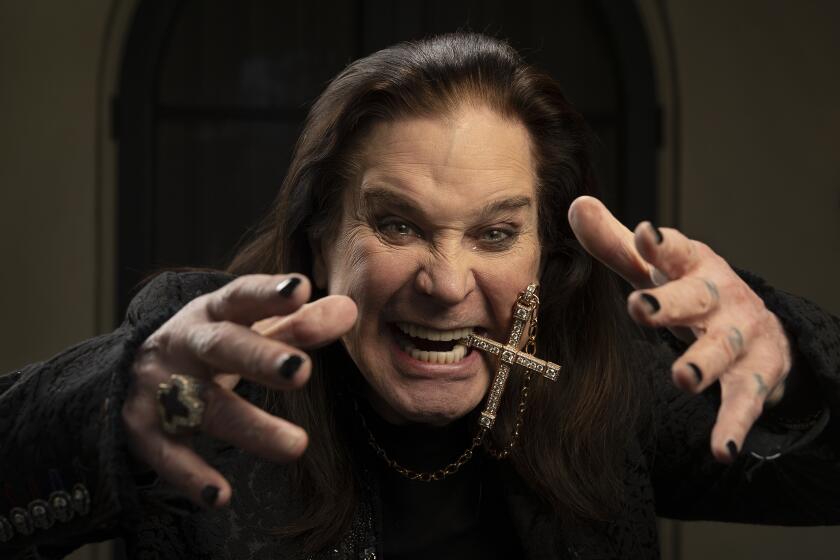Music, Man : Chuck Niles, godfather of L.A.’s jazz scene, finally gets the star treatment
- Share via
Afew years ago in the San Fernando Valley, a middle-aged woman who recently had purchased a handgun signed up with an instructor to learn to handle her weapon. She was taught safety procedures as well as firing stances, and on graduating from the class, she turned to her instructor and said, “Thank you--now I can go kill Chuck Niles.”
You don’t have to be a jazz fan or a determined psychopath to have Chuck Niles in your head--but it can’t hurt. (In this particular case, Niles’ “fan” was eventually placed under a restraining order by the Long Beach police.) L.A.’s preeminent jazz disc jockey--his 100-proof rasp has been pouring out of hilltop transmitters since 1956--Niles sets up every weekday afternoon between 3 and 7 inside the discrete studios of KLON on the Cal State Long Beach campus. “A shack in the back woods” is how Niles, 70, describes the building, which, surrounded as it is by 28,000 rock and hip-hop fans on their way to class, is also an apt description of the station’s stature on campus. “I don’t think 99% of the kids here know this place exists,” says Niles, which likely is true for close to 100% of L.A.’s radio audience.
All this changes Thursday when Niles--be it Niles or “Nails” or “Bebop Charlie” or whatever else his friends call him these days--receives a star on the Hollywood Walk of Fame. Maybe then the Voice will be known outside of Niles’ fervent audience demographic, “the faceless group of people that dig jazz,” as he calls it. If you spend much time with Niles, listening to his rolling jazz patois, feeling its rhythms invade your vocal timbre, you begin talking like him. “Absolutely, man!” you say when agreeing; “Everything’s cool, baby,” when pacifying; and “Clint Eastwood, he’s a nice cat,” when speaking of actors who love jazz.
“He’s the Voice, but also the Link,” says David Abell, former president of the L.A. Jazz Society. “The one person the straight-ahead jazz community in L.A. identifies itself around. Without Chuck spreading the word, people wouldn’t know what’s happening in jazz. He is jazz.”
For a brief stint in the ‘60s, when he was hired by a program director named Turkey Thompson at country-western KGBS, Niles wasn’t himself on-air. “They called me Country Charlie Niles, but I’d put on the earphones and hear all these clams--goofs, man, bad chord changes. I couldn’t be who I was playing country music. Like Popeye, I am who I am playing jazz.”
More to Read
The biggest entertainment stories
Get our big stories about Hollywood, film, television, music, arts, culture and more right in your inbox as soon as they publish.
You may occasionally receive promotional content from the Los Angeles Times.










